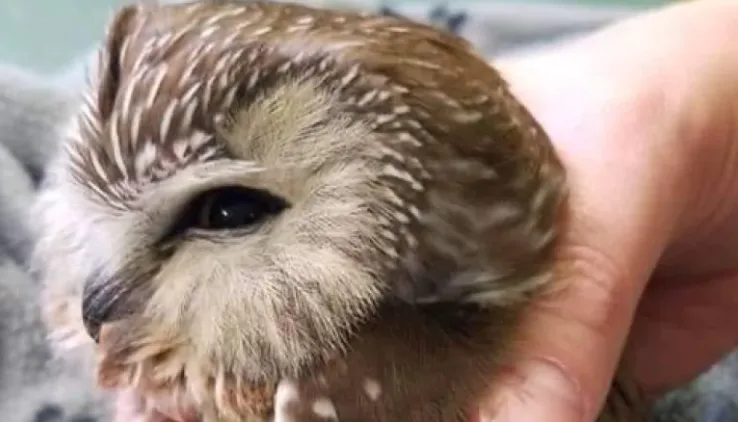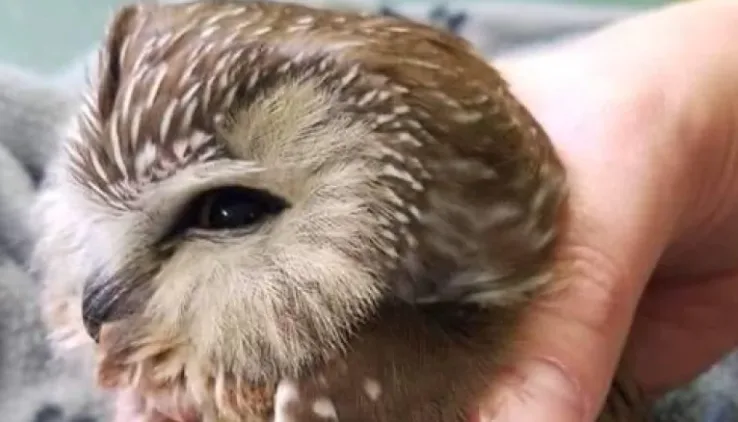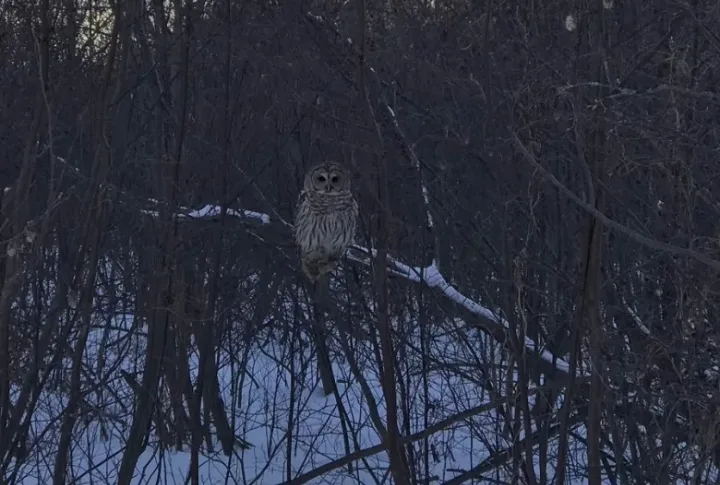
Who had a tough winter? These small, rodent-eating owls
Small rodent-eating birds, like barred owls and saw-whet owls are coming out of a tough winter, according to the Atlantic Wildlife Institute's director of wildlife care.
Pam Novak said she's seen more barred owls at the centre in Cookville, N.B., this winter, and is hearing more talk on social media about sightings of saw-whet owls, some of them injured.
"These type of winters when … we have that layering effect where you have snow and ice, I think it's harder for our raptor species to hunt," she said.
"Rodents can survive through that and tunnel up underneath it and stay protected, but an owl … they can't get to it, because there is a thick layer of ice stopping them from grabbing their prey."

An adult saw-whet owl weights about 80 grams. Pam Novak of the Atlantic Wildlife Institute says this winter may have been hard on the fierce but small owls because of thick ice, which gave rodents somewhere to hide. (CBC - Submitted)
Novak says seven barred owls have been treated at the centre since December, more than normal.
"Most of the ones we saw … they were starving."
Also making repeat appearances are saw-whet owls, especially in the last month.
"People are finding them tucked up outside their windows, on tree branches," said Novak.
"They're still fierce hunters and will go after rodents as well, but if they can't get through that snow cover or find some bare ground … they're going to have a tough time."
Novak said there is a natural "die-off" every year as some of the young of the species go out on their own for the first time and can't survive the harsh winter.
But she said it's also important to watch for trends to see if anything is changing over the years in terms of mortality events which can help understand how wildlife centres or the public can help animals like the owls.
Other than starvation, Novak said she is mostly treating animals for head trauma, most likely from being hit by vehicles.
She suggested people slow down when driving at night and keep an eye out for wildlife — whether on land or in the air.

Seven barred owls have been admitted to the Atlantic Wildlife Institute in Cookville, N.B., since December 2018. (CBC - Submitted)
She said if someone sees an animal that looks injured, they should give it space.
"You don't want it to waste precious energy trying to get away from you," she said.
If the concern continues, contact the Atlantic Wildlife Institute.
"We'll talk you through if it seems like an animal that needs to be checked on, or left alone."
This article was originally published on CBC.ca and written by Tori Weldon










